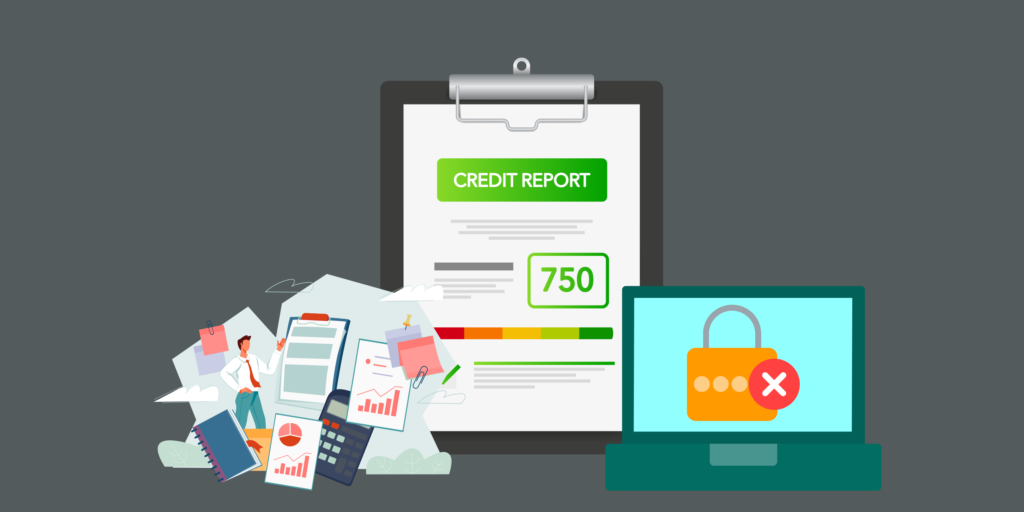
June 14, 2017
Shawn Lane
Consumer Credit Expert
Common Credit Mistakes to Avoid
Knowing what not to do can be just as important as knowing what you need to do when it comes to your credit. Even if you have worked hard to establish good credit, the wrong slip-up has the ability to undo much of your hard work. Thankfully you have the opportunity to learn from the missteps of others and hopefully avoid tripping over some of the same credit potholes yourself. Keep reading to learn about 4 common credit mistakes, which you should try to avoid.
Mistake #1: Paying Late
The idea that your credit scores are completely based upon how timely you pay your bills is a bit of a myth. Yet it can be truthfully stated that you will never be able to earn great credit scores unless you develop the habit of keeping your bills paid on time, all of the time. Even the occasional late payment can cause severe credit score damage.
In FICO’s credit scoring models (the brand of credit score most commonly used by lenders) 35% of your credit scores come from the Payment History category of your credit reports. One of the chief factors considered within this 35% category is whether or not you pay your monthly credit obligations on time. Establishing credit reports which are free from late payments is essential to your credit score success.
If you have made late payments in the past that does not mean your credit scores are doomed forever. Scoring models consider how recently the late payments on your credit report occurred. The older the late payments become, the less they will impact your credit scores.
Mistake #2: Closing Credit Card Accounts
Another common credit blunder is the closure of current credit card accounts. If you have ever gotten in over your head with credit card debt it is understandable why you might feel a little gun shy about credit cards now. However, closing those accounts has the potential to damage your credit scores.
When you close a credit card account you do not lose credit for the age of the account. That is another credit myth. Yet you can increase your overall debt to limit ratio (aka revolving utilization ratio) by closing a current credit card.
Credit scoring models consider how much debt you owe versus your capacity to spend (aka your credit limits) on credit card accounts. As your credit card balances creep higher and higher toward your collective overall spending limit, your scores will take a hit. Closing a current credit card account can hurt your credit scores because that closure may increase your overall debt to limit ratio.
Mistake #3: Co-Signing
One of the worst credit mistakes you could ever make is to co-sign for another person’s loan or credit card account. When lenders require a co-signer it is because they are not comfortable with the risk of extending credit to the applicant on their own. The lender wants someone else to be on the hook for the debt in the event that the primary applicant fails to pay according to the terms of his or her agreement.
Co-signing means that you are accepting liability for the debt, just as if you were applying for an extension of credit completely on your own. The idea that you are any less responsible for a debt as a co-signer is false. There is no such thing as being “only” a co-signer.
Perhaps the biggest risk you take on when you co-sign is the risk that your loved one will make late payments. As already covered above, even periodic late payments can cause severe credit score damage. Yet co-signing for a credit card can harm your scores even if your loved one never pays late.
Remember, credit scoring models consider your debt to limit ratio on credit cards. If you co-sign and your loved one does not pay off that credit card balance in full every month your credit scores could be hurt. No matter how much you love your friends or family members you need to resolve ahead of time that co-signing is always off limits.
Mistake #4: Applying for a Retail Store Card to Access a Discount
Another factor, which credit scoring models like FICO consider, is how often you apply for new credit. When people start to apply for a lot of new credit in a short period of time it can sometimes indicate financial instability. In fact, statistics show that people who apply for credit too frequently are more likely to make late payments on their credit obligations. As a result too many credit pulls by lenders (aka hard inquiries) can potentially harm your credit scores.
You do not need to avoid having your credit pulled altogether, nor do you have to be afraid to pull your own credit reports, as doing so will never harm your credit scores. Yet you should probably develop the habit of only applying for credit when you actually need it. Applying for a retail store credit card because you want access to a discount, for example, does not exactly qualify as a “need.”
Are your past credit mistakes holding you back? Click here or call 214-856-0068 to schedule your FREE credit analysis with Financial Renovation Solutions today.
Please feel free to contact me if you have any questions.
Also know the 4 Costly Credit Mistakes to Avoid
